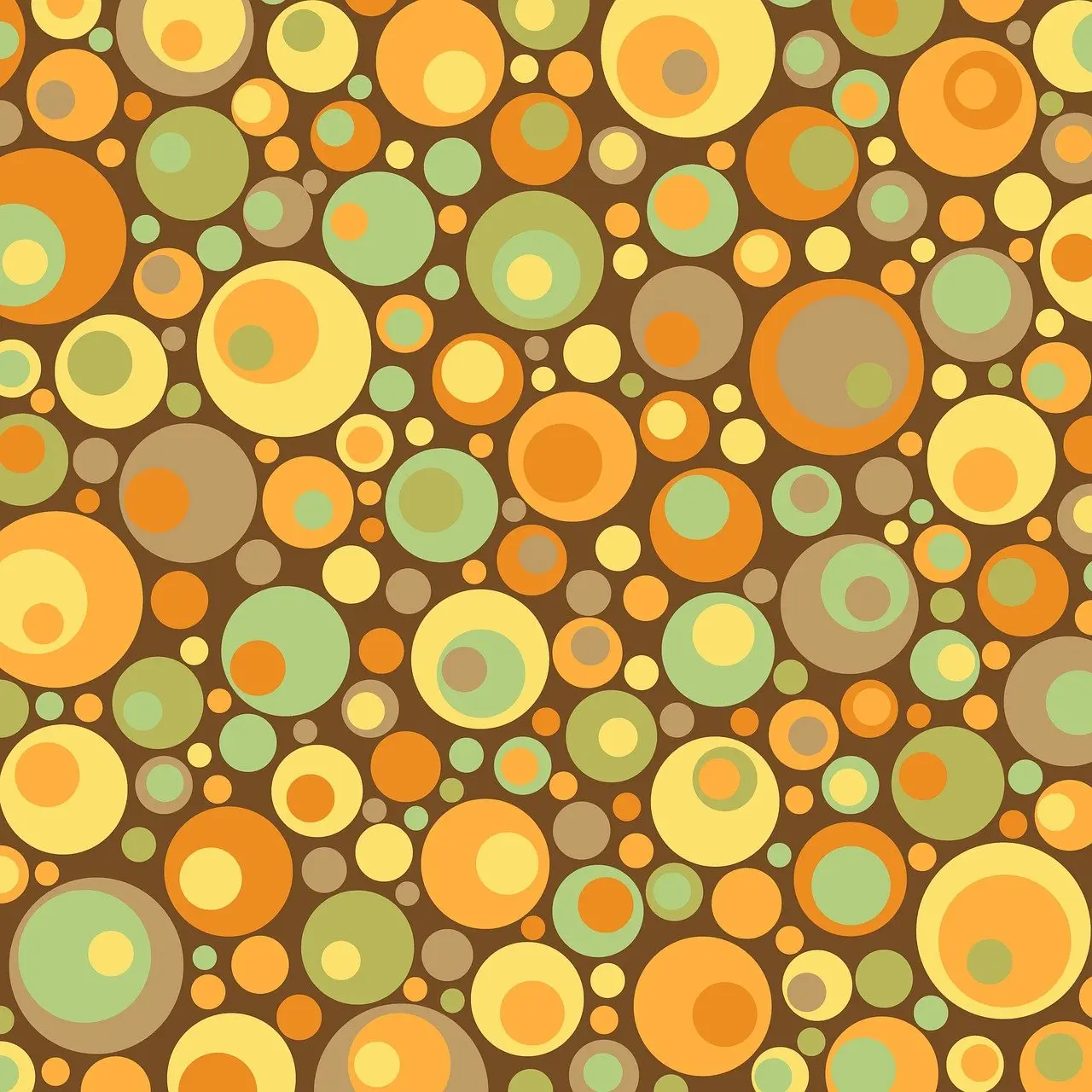What Is the Meaning of Dreams? Unlocking the Subconscious

Looking for more amazing products? Check out our online store and explore our collection here! Happy shopping!
Before diving in, please note: This post is for informational purposes only. If you’d like to know more about how we approach topics, feel free to check out our friendly Disclaimer Page.
Hey there, amazing readers! 
We’re committed to delivering quality posts, and your support (even just sticking around despite the ads) means everything to us. So, bear with us, and thanks for helping us keep the good vibes rolling. Now, on to the fun stuff!
TRANSLATE BUTTON AT THE END OF THE ARTICLE
A Quick Overview
Have you ever woken up from a dream feeling confused, enlightened, or perhaps a little scared?
Dreams are a fascinating part of our nightly routine, and they often hold more meaning than we realize.
Here, we’ll delve into the mysterious significance of dreams and explore what they can reveal about our subconscious minds.
Introduction: The Fascinating World of Dreams Awaits!
Dreams have intrigued humanity for centuries.
They can be whimsical journeys filled with fantastical scenarios or perplexing puzzles that leave us scratching our heads.
Each night, as we drift into slumber, our brains embark on an adventure.
Some people wake up remembering vividly detailed stories, while others find themselves blanking out entirely.
Our dreams can mirror our daily experiences, fears, desires, and even hidden thoughts.
They often serve as our brain’s playground, where the rules of reality bend and twist.
I mean, who hasn’t had a dream about flying or being chased by a giant marshmallow?
It’s really a ride through our most intimate thoughts and emotions—sometimes with a twist of humor!
But what do these nighttime escapades really mean?
Are dreams mere figments of our imagination, or do they hold significant insights into our waking lives?
Let’s peel back the layers of this nightly phenomenon.
History of Dream Interpretation: Ancient Insights Revealed
The interpretation of dreams is as old as civilization itself.
Ancient cultures often viewed dreams as messages from the divine or as omens foretelling the future.
For example:
Babylonians: They believed that dreams were communications from the gods.
They documented these dreams and created dream interpretation manuals!
Egyptians: They saw dreams as a connection to the spiritual world and often used them for guidance.
Pharaohs, in particular, sought dream interpreters to gain insight.
Greeks: Think of Aristotle and Plato!
They believed dreams were reflections of our waking life but also hinted at deeper truths about ourselves.
Fast forward to the 19th and 20th centuries, where figures like Sigmund Freud and Carl Jung brought dreams into the realm of psychology.
Freud considered dreams the "royal road to the unconscious," suggesting they reveal our suppressed desires and fears.
Jung expanded this idea, proposing that dreams allow us to explore our collective unconscious and archetypes.
This rich tapestry of historical perspectives emphasizes how dreams have always been entwined with human experience.
They serve multiple purposes, from communication to self-reflection.
The Science Behind Dreams: What Happens While We Sleep?
Ever wondered what’s actually happening in your brain while you dream?
Well, there’s a lot going on!
Explore the Path to Spirituality and Enlightenment – Start Here.
As we sleep, our body cycles through different stages, including REM (Rapid Eye Movement) sleep, which is when most dreaming occurs.
The brain is quite active during this phase!
Brain activity: Neurotransmitters go haywire, creating a vivid tapestry of visual and emotional experiences.
Temperature regulation: Our body temperature drops, which can influence the environment of our dreams.
Memory consolidation: Research shows that sleep plays a crucial role in processing memories.
That’s why some of your dreams might replay events from your day.
Interestingly, scientists are still piecing together the exact mechanisms behind dreaming.
Some theories suggest dreams are a way for our minds to process emotions or work through problems.
When we dream, we create connections and make sense of our experiences.
So next time you wake from a dream, remember: it’s not just a random assortment of images.
Your brain is hard at work!
Types of Dreams: From Nightmares to Lucid Adventures
Dreams come in many shapes and flavors.
Some can be delightful, while others might leave you in a cold sweat.
Here’s a quick rundown of various types of dreams:
Lucid dreams: You become aware you’re dreaming and can even take control.
It’s like being the director of your own movie!
Nightmares: These can cause anxiety and fear.
A nightmare can stem from stress or trauma and often leaves behind a lingering feeling of dread.
Recurring dreams: These dreams repeat over time and often point to unresolved issues in your waking life.
Daydreams: These are fleeting thoughts during waking hours, often filled with wishful thinking or creative ideas.
False awakenings: You dream that you’ve woken up, only to realize you’re still asleep.
It’s like being trapped in a dream loop!
Understanding these different types of dreams can help us navigate our feelings and thoughts.
Whether it’s the thrill of flying or the terror of falling, each dream experience adds a unique tapestry to our nightly escapades.
Common Dream Symbols: Unlocking Their Hidden Meanings
Dreams can be filled with symbols that reflect our subconscious.
Certain themes tend to pop up regularly.
Here are some common dream symbols and what they might mean:
Falling: Often signifies a loss of control or insecurity.
It’s that classic "falling off the edge" feeling!
Flying: Represents freedom and a desire to escape.
It’s exhilarating, right?
Being chased: Usually points to avoidance or fear.
What or who are you running from in your life?
Teeth falling out: This could indicate anxiety about appearance or fear of aging.
It’s surprisingly common!
Water: Often symbolizes emotions.
Is it calm and tranquil, or is it stormy and turbulent?
Interpreting these symbols can shed light on our emotions and situations.
When I dream of flying, it often reflects my desire for freedom during busy times.
This kind of insight can transform our understanding of our waking life.
The Role of Emotions in Dreaming: Feelings in Focus
Emotions play a pivotal role in our dreams.
They can amplify the narratives we experience while we sleep.
Ever had a dream that made you wake up feeling ecstatic or utterly terrified?
That’s your emotions at work!
Emotional processing: Dreams help us sort through feelings.
If you’re stressed, anxious, or excited, these emotions often emerge in dream form.
Memory recall: Emotions can enhance our ability to remember dreams.
A particularly emotional dream is often more vivid and memorable.
Reflection of reality: The feelings in our dreams often mirror our waking emotional states.
If you feel overwhelmed, your dreams might be chaotic and frantic.
By paying attention to the emotions we experience in dreams, we can decode messages about our feelings and situations.
It’s like a nightly emotional check-in!
Cultural Perspectives on Dreams: A Global Viewpoint
Cultural beliefs about dreams vary widely around the globe.
From ancient civilizations to modern society, people have interpreted dreams in different ways.
Here are a few fascinating insights into how different cultures view dreams:
Native American cultures: Often see dreams as a source of guidance and wisdom.
They may hold rituals to interpret dreams.
Asian cultures: In many traditions, dreams are considered significant for foresight and spiritual communication.
African traditions: Often view dreams as a bridge to ancestors and spirits.
They interpret dreams during communal gatherings for insight.
Western perspectives: Generally, dreams have been analyzed through psychological lenses, focusing on individual experiences and subconscious thoughts.
Exploring these cultural interpretations enhances our understanding of dreams.
It shows that while dreams are personal, they also connect us to our shared human experience.
The Connection Between Dreams and Memory: Remembering More
Dreams and memory are intricately linked.
It’s during our sleep that our brains consolidate memories from the day.
Here’s how they relate:
Memory integration: Dreams help us process and integrate our experiences.
They allow us to work through emotional or significant events.
Problem-solving: Many people have reported waking up with solutions to problems they faced in their waking life.
Our brains continue to work on these puzzles while we sleep.
Creative inspiration: Some of the world’s greatest ideas and inventions have come from dreams.
Think of how many artists and scientists have credited dreams for their creativity!
By understanding the connection between dreams and memory, we can appreciate the importance of sleep in our lives.
It’s not just rest; it’s a vital part of our cognitive functioning!
Techniques to Remember Your Dreams: Capture the Magic!
If you’ve ever woken up and thought, “I wish I could remember that dream!” you’re not alone.
Here are some practical tips to enhance your dream recall:
Keep a dream journal: Write down your dreams as soon as you wake up.
This not only helps with memory but also allows you to look for patterns over time.
Set an intention: Before going to sleep, tell yourself you want to remember your dreams.
This can act as a mental cue.
Wake up slowly: Spend a few moments lying in bed before jumping up.
This gives your mind time to recall dreams.
Stay hydrated: Sometimes, dehydration can affect your sleep quality and therefore your dreaming.
Implementing these techniques can help you capture the magic of your dreams and unlock the insights they hold!
Dream Journals: Your Guide to Understanding Sleep Stories
A dream journal is a fantastic way to record your nighttime adventures.
Here’s how to make the most out of it:
Choose a dedicated notebook: Find a small notebook or use an app.
Make it a cozy spot for your dream musings.
Write immediately: Jot down your dreams as soon as you wake.
Include as many details as possible—feelings, colors, people, settings.
Look for patterns: Over time, review your entries to see if certain themes or symbols emerge.
This can provide deeper insights.
Reflect: After writing, take a moment to reflect on what the dream might mean for you personally.
Dream journals are a tool for self-exploration.
They help us delve deeper into our subconscious and reveal parts of ourselves we may overlook.
The Power of Lucid Dreaming: Control Your Dreamscapes!
Lucid dreaming can be an exhilarating experience.
Imagine knowing you’re dreaming and being able to control the dream!
Here are some tips to tap into lucid dreaming:
Reality checks: Throughout the day, ask yourself if you’re dreaming.
This habit can carry over into your dreams.
Mnemonic induction: Before sleep, tell yourself you will realize you’re dreaming.
This technique can trigger lucidity.
Wake back to bed: Set an alarm to wake up after a few hours of sleep, then go back to bed.
This can increase your chances of lucid dreaming.
Lucid dreaming opens doors to creativity, self-reflection, and adventure.
It transforms the way we experience our dreams.
Conclusion: Embrace Your Dreams and Discover Yourself!
Dreams are a beautiful tapestry woven from our thoughts, experiences, and emotions.
They serve as a window into our subconscious, allowing us to explore our deepest feelings and desires.
Whether you find joy in lucid dreaming, interpret your dreams through journaling, or simply enjoy their nightly escapades, embracing your dreams can lead to profound insights about who you are.
So the next time you drift off to sleep, remember: your dreams are more than just stories; they’re a unique connection to your inner self.
Sweet dreams!

The Enlightenment Journey is a remarkable collection of writings authored by a distinguished group of experts in the fields of spirituality, new age, and esoteric knowledge.
This anthology features a diverse assembly of well-experienced authors who bring their profound insights and credible perspectives to the forefront.
Each contributor possesses a wealth of knowledge and wisdom, making them authorities in their respective domains.
Together, they offer readers a transformative journey into the realms of spiritual growth, self-discovery, and esoteric enlightenment.
The Enlightenment Journey is a testament to the collective expertise of these luminaries, providing readers with a rich tapestry of ideas and information to illuminate their spiritual path.
Our Diverse Expertise
While our primary focus is on spirituality and esotericism, we are equally passionate about exploring a wide range of other topics and niches 

To ensure we provide the most accurate and valuable insights, we collaborate with trusted experts in their respective domains 
Our blog originally focused on spirituality and metaphysics, but we’ve since expanded to cover a wide range of niches. Don’t worry—we continue to publish a lot of articles on spirituality! Frequently visit our blog to explore our diverse content and stay tuned for more insightful reads.
Hey there, amazing reader! 
Check out our store here and take a peek at some of our featured products below! Thanks for being awesome!













